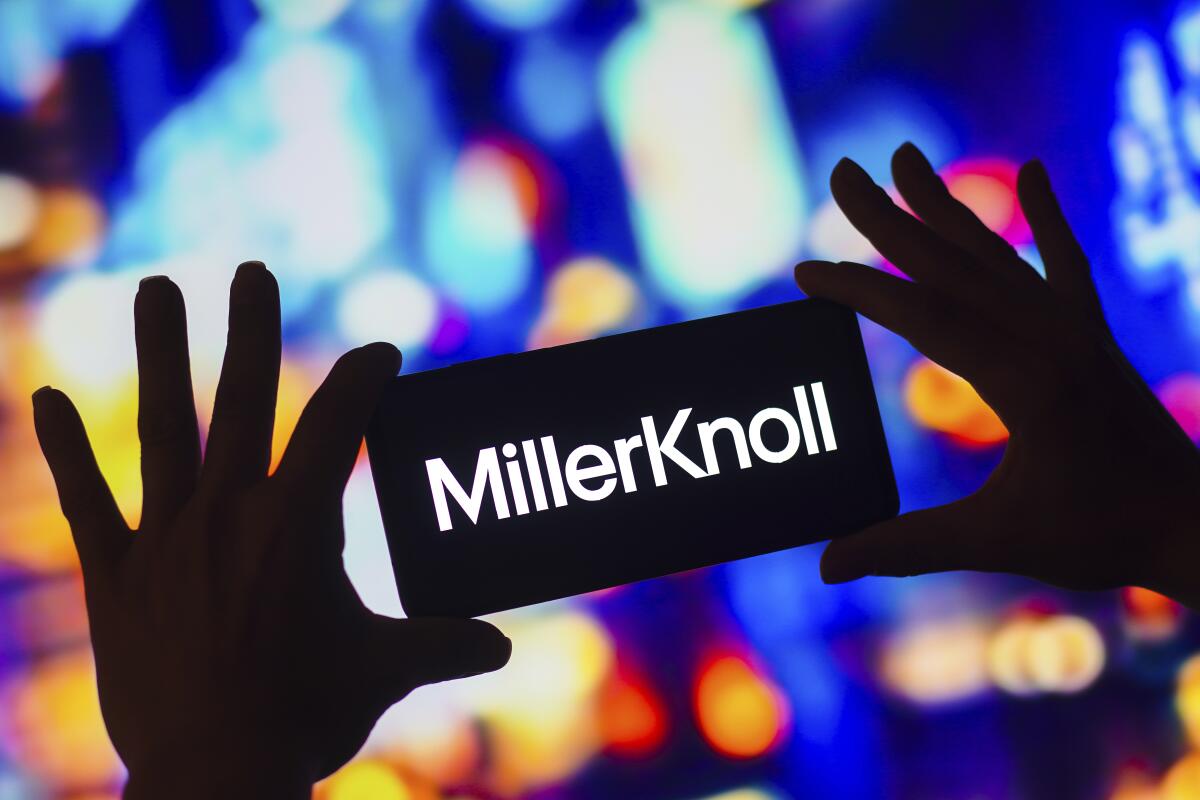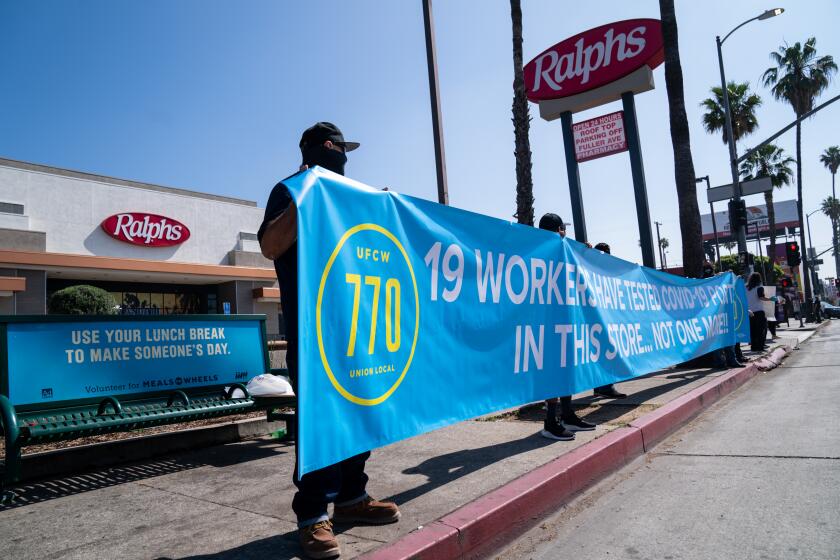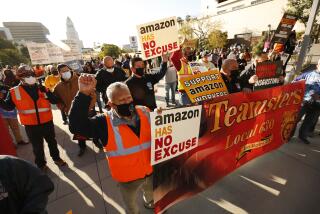MillerKnoll CEO who ranted over staffers’ bonus concerns made $5 million last year

- Share via
The head of the upmarket furniture-maker MillerKnoll, known for its iconic Herman Miller office chairs, is under fire for telling employees to leave “pity city’’ and stop asking about bonuses.
Those words by Chief Executive Andi Owen have provoked criticism on social media — and they may soon come back to haunt her as Owen’s own pay package for the current period will likely be disclosed by August.
In the prior fiscal year she received a salary of roughly $1 million, in addition to about $4 million from mostly stocks and options, an annual incentive plan, and covered expenses, like access to a company jet.
Compensation is a hot-button topic for both employees and executives, especially when the economy is going through a rough patch, said Tony Guadagni, a senior principal at consulting firm Gartner.
Scrutiny over executive pay levels is intensifying as surging inflation hits household budgets and the U.S. experiences wide-scale staffing shortages, which has emboldened many employees to push for higher wages.
Most top executives are holding onto the bulk of their big pay packages while rank-and-file workers lose salary and jobs.
“I think in a time like this, where the news cycle has been dominated by inflation for 18 months, where employees feel their paychecks not going as far as they used to — organizational leadership would be wise to be sensitive to that,’’ he said.
The 90-second leaked recording captures Owen chiding staff at the end of a 75-minute internal company meeting for speculating too much about the annual bonus payouts.
“Spend your time and your effort thinking about the $26 million we need, and not thinking about what are you going to do if you don’t get a bonus,” Owen said in the video, referring to an internal metric. “I had an old boss who said to me one time, ‘You can visit pity city, but you can’t live there.’ So people, leave pity city.”
Following the meeting, Owen sent an email to staff and met with leaders across the company to address their concerns, according to a person familiar with the situation.
“Andi fiercely believes in this team and all we can accomplish together, and will not be dissuaded by a 90-second clip taken out of context and posted on social media,” MillerKnoll spokesperson Kris Marubio said in an emailed statement.
Despite pandemic closures and more shareholder votes against their pay, CEO compensation keeps soaring. But there are signs the backlash is working.
The worry by staff at the Michigan-based company over a possible shrinking bonus pool comes amid a drop in sales at MillerKnoll this year as businesses pulled back on spending. Companies are downsizing their real estate footprint as many workers continue to work remotely as the pandemic recedes, dampening demand for office furniture.
Other CEOs’ salaries have been in the spotlight in recent months in the wake of mass layoffs. Some, like Goldman Sachs’s David Solomon and Morgan Stanley’s James Gorman, have already accepted pay cuts, while others have yet to report their most recent compensation packages.
Though CEOs make around 300 times the average employee, only about a third of the rank-and-file polled by Gartner thought the wage disparity was unfair. But as economic anxieties grow, there’s a chance that employees may become increasingly sensitive to the difference in their pay and executives’ compensation, Guadagni said.
“I wouldn’t be surprised if we start to see the tide turn on that a little bit, especially depending on what happens to the economy in the next six to 12 months,’’ he said.
More to Read
Inside the business of entertainment
The Wide Shot brings you news, analysis and insights on everything from streaming wars to production — and what it all means for the future.
You may occasionally receive promotional content from the Los Angeles Times.












